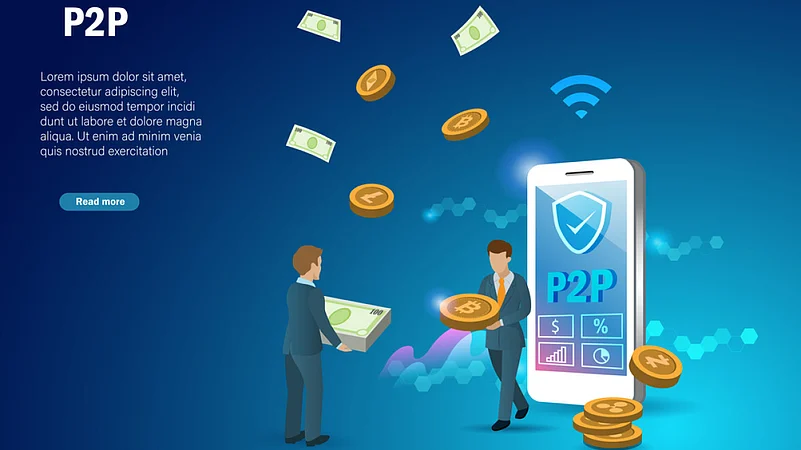Gen-Z and millennials often have poor credit scores because of a shorter or no credit history, making it difficult for lenders to evaluate their creditworthiness. This often poses a roadblock for millennials looking for loans to fund needs such as buying a laptop or expensive books for professional courses.
While they may get personal loans from little-known or unrecognised lenders, the interest rate of such loans can go up to as high as 20 per cent or more, coupled with high processing fees.
“Millennials suffer from shorter or no credit history and, hence, are often denied credit by traditional financial institutions. Unregulated money lenders charge high-interest rates and fees, limiting their access to credit. This, in turn, exacerbates the evaluation of their creditworthiness by limiting their ability to build a good credit history,” says Joginder Rana, vice-chairman and managing director, CASHe, an artificial intelligence-powered loan provider.

If you find yourself stuck in a similar situation, it’s time to explore other options. Here are four other options you can use to borrow without the need for a high credit score. Most of these do not charge a high-interest rate and are easy to procure.
Loans Against Collaterals
Gold Loans: As the name suggests, these types of loans are available against the yellow metal you can pledge with a bank or non-banking finance company (NBFC). Suppose you have some old family gold jewellery worth Rs 40,000 but do not want to sell it. You can use gold to get a short-term loan for, say, three months by pledging it. Usually, banks and NBFCs give up to 70-80 per cent of the value of gold.
“While the Reserve Bank of India (RBI) has made it mandatory to consider an individual’s credit score to avail a loan. However, with gold loans, the gold asset itself operates as a security and protection for the banks and NBFCs. Hence, consumers, including self-employed, salaried, businessmen, professionals, farmers, or traders can apply for a gold loan. All loan applicants should have a valid KYC (know your customer) document like address proof and identity proof. This is considered the best financing option for people with low or nil credit scores. We offer loan to value, as per the directives of RBI,” says George Alexander Muthoot, managing director of Muthoot Finance, an NBFC dealing with gold loans.
Loans Against Assets and Investments:
These are the most straightforward and highly used types of loans. What happens here is that you mortgage your asset for a loan.
The asset can be anything that has a marketable value. For example, if you have mutual fund investments worth Rs1 lakh and you want a loan of Rs10,000, you can avail the LAS (loan against securities) facility from any bank or NBFC by pledging it. Your investment will stay intact unless you default on the loan. You can also take a loan against your life insurance policy.
“People with low or no credit score have numerous avenues available today to access credit. While new-age fintechs are offering multiple financing solutions, people can also take loans against their assets, including shares, mutual funds, FDs, property, etc,” added Amit Das.

Loans Through Facilitators:
Peer-to-Peer (P2P) Lending: This doesn’t strictly come in the category of loans but can be used as a borrowing tool by people with poor or no credit score.
Here, you need to register yourself with a P2P lending platform and submit your KYC details. You can then specify your loan amount, interest rate, and tenure requirements. The platform will then connect you with a willing loan provider and take a small commission for this.
“There are chances of getting a loan from the P2P platform even at a lower credit score. The algorithms are made to automatically detect such events and profile the creditworthiness of the borrower accordingly,” said Bhavin Patel, co-founder and CEO of LenDenClub, a P2P lending and borrowing platform.
Artificial Intelligence-Powered Loan Apps: Some of these apps act as facilitators to connect you with a suitable lender according to your existing credit profile.
They leverage data science technology and use artificial intelligence algorithms to create a customer credit profile using the credit score and other activities such as payment of utility bills and online purchase history. Then they use this credit profile to connect the customers with a suitable NBFC.
Interest rates vary according to the loan's size and the borrower's credit profile. You can use these apps to get access to loans which suit your current credit profile.
“Earlier, the lack of a credit score and absence of other financial documents required for the underwriting process were major deterrents for the traditionally underserved and underbanked communities in India. AI and ML (machine learning) have now enabled the expansion of credit access by taking alternative data into account and parsing insights from them to determine one’s creditworthiness. Alternative data can include assessment of salary, timely payment of utility bills, online purchase history, periodic business expenses, and more,” says Lalit Mehta, Co-founder and CEO, Decimal Technologies, an AI-powered loan provider.

What You Should Do
While these options may get you loans easily, it is up to you to build your credit score so that you do not face problems taking loans in the future.
“With these various options in new-age lending, individuals need to ensure prudent repayment behaviour, since failure to repay these loans can adversely affect their credit scores,” says Amit Das, CEO and co-founder of Think360.ai, a full-stack data science company.
Remember that whenever you default on loan repayments, your credit score gets affected. Also, the above options may be useful for smaller loans but for loans such as a home loan, you will have to go to a traditional lender.













